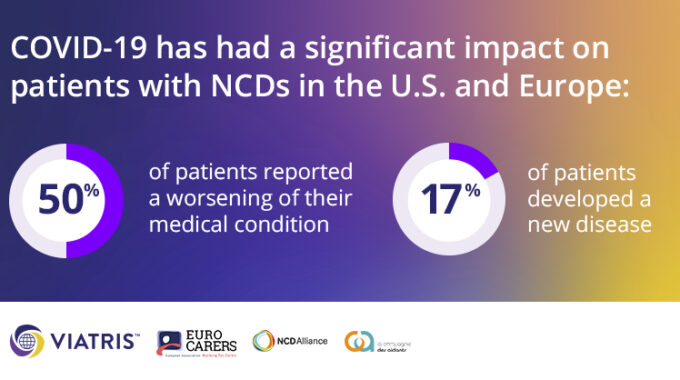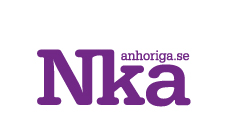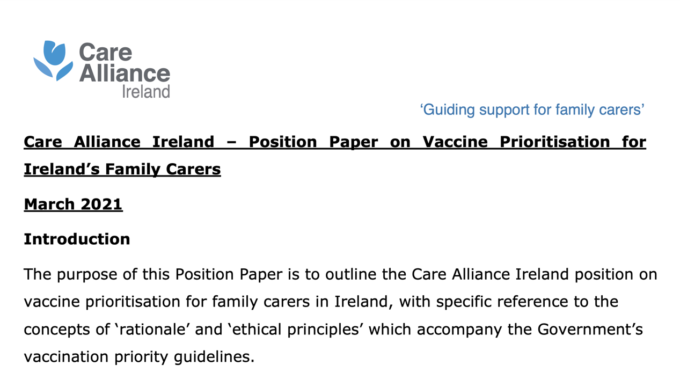
COVID-19 Open letter from one of our Italian members
Dear Eurocarers Membres,
Recently C’entro received an Open Letter from its associate member, Scuola Centrale Formazione, that was sent to all its 100 VET centres all over Italy…The challenge for them is high, even if they all get organized for distance learning. But the most fragile students, those with Special Educational Needs, require an extra support in order to be part of the e-learning…and remain part of the social context.
Some of them, the most severe ones, receive only sanitary home support, where this is possible: the social cooperatives are in the front line, but lot of times the adequate protection devices are missing. Some small territories obtained, after a taught battle, the agreement with the local Police, allowing the educators and the carers to take out for a walk (in safety conditions), especially the persons with autistic disorders. But almost everywhere on the Italian territory families have to cope with their crisis within the home environment.
The less severe ones require, most of all, a strong alliance between the school and their families, maybe stronger than ever, but their dear carers are already used to manage emergency situations. In some cases, their carers need to be cared after, but there’s no one there…this is why the healthcare technicians and the school staff has to be in constant communication with them and make efforts in order to guarantee a minimum home intervention.
Here are the main thoughts contained in the Open Letter from Scuola Centrale, especially dedicated to the context of the families who have to take care, in extreme situations, of sons and daughters with disabilities:
- We think that we all know everything (even too much!) about the sanitary emergency.
- We all fear, to a certain extent, for ourselves, for our families, especially for the most fragile among us.
- We have a problem linked to the loss of our “certainties”, we have lost some of our reference points and we don’t see yet the “light at the end of the tunnel”. We know that light will come, but for now we have to make our best out of this “today”.
- We would like to express solidarity towards all our fragile members
The new generations are the most fragile ones, and we have to give priority to them in this emergency. We like to repeat it over and over that all persons are equal, with the same rights. And it’s this the most appropriate moment to say it lounder than ever. And make sure that not one of them is put apart, and that families get the needed supports. - We share with our associates and partners: “we are with you”
We share the thoughts of one of our teachers: “It’s a time in which, paradoxically, the physical distance reinforces our sense of being a family and a community. Maybe from this common evil we’ll be able to understand better the value and the concept of the “common good”, appreciate it and maybe share it. We hope to be wise and make use of these moments, when we are obliged to rethink our time and choose “the essential” aspects. The misery or this period is not only the economical one, but also the awareness about our own limits and of those of the entire society. - We can make the difference (together)
We all remain active even from home. We are aware that we can make the difference. Our activity is that of acting for “communication” and for building the Communities of practice at the distance, a space in which the experts and the families can interact. We don’t have a lot of experience yet, but we act together as we believe that this system at the distance will become more popular and important in the future. - Hope and certainties:
We all hope that after this emergency that will pass (and it will pass!) we will remember that the public health system is financed by our taxes. Who knows if as “nations” we will become more “communities” and less “persons”?
This is the opportunity that we have in front of us: more “community”… and there is not even much choice nowadays.
The only certainty is that nothing will be the same after this experience; but we will be stronger because we’ll survive the virus and the loneliness or, worse, the indifference.
We will be better because we will understand, more than ever, the difficult times of our grandfathers, who had to overcome, in order to defend the young generation, apparently unsurpassable hardships, and by doing this they transferred values like generosity, solidarity and faith.
A strong virtual hug,
Giovanni Zonin,
President of Associazione C’entro





